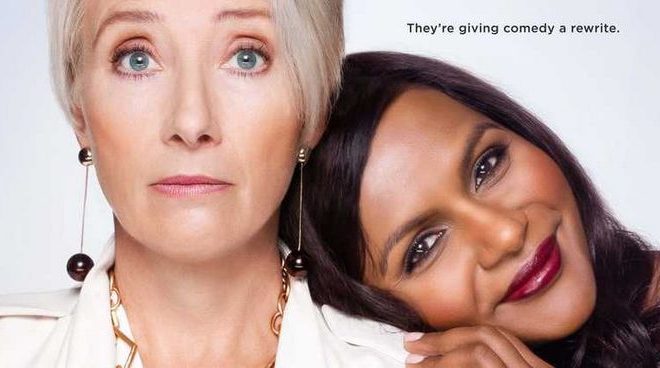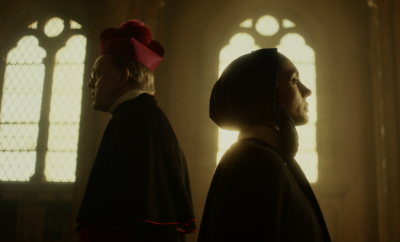
Movie Reviews
Late Night
By: Maggie Stankiewicz
Written by and starring the ever-brilliant Mindy Kaling and Emma Thompson, Late Night follows the lives of two very different women on opposing journeys. Brutal and brilliant, Katherine Newton (Emma Thompson) is a late-night talk show host on the precipice of being written off of her own show. Molly Patel (Mindy Kaling) is a Quality Assurance Specialist at a local chemical plant who lands her dream job as a staff writer for Katherine’s show. Together, and apart, the two women struggle to adapt to the challenges of their new positions, both failing and fledgling. Molly works to connect with her fellow writers, who prove to be hostile to new blood – while Katherine battles it out with a catty network executive hellbent on replacing her. Through the lenses of Molly and Katherine, the film explores diversity, ageism, sexism and the stormy seas women face when trying to break into (or survive in) the industry. Late Night is both a love letter and a criticism of comedy, with lots of laughter to help the medicine go down.
Katherine Newton has been coasting for years, frequenting the awards circuit, tending to her ill husband Walter (John Lithgow) and tossing aside anyone who fails to pique her interest. Her complacency comes to an abrupt halt when the head of her network Caroline Morton (Amy Ryan) informs her of the end of her run. Katherine has one season left before she’s replaced with a younger, male host. Not one to lay down and take it, Katherine sets out to improve her public image and refresh the program. It quickly becomes evident that she needs a female writer to cut through the testosterone laden scripts. In stumbles Molly Patel, a completely inexperienced chemical plant manager with zero formal writing qualifications. Katherine’s left-hand man Brad (Denis O’Hare) brings Molly onboard as a diversity hire, giving the young woman yet another mountain to climb on her way to respectability.
Molly brings a fresh perspective to Katherine’s writers’ room, as she is a fan first and foremost. Her approach to improving the show’s writing from the perspective of a fan observing an obvious decline in content quickly trumps the “merit” of her ivy-league educated co-workers and she manages to impress Katherine as much as she frustrates her. Together, they revitalize the show and re-brand Katherine…but it’s not enough. Katherine’s public image takes another blow, through which another criticism of the entertainment industry is observed – “cancel culture.” Fans effectively “cancel” Katherine, an older woman who made a mistake on par with those of many of her male peers. The question is raised as to why are women so harshly punished for being diverse, for being older, for being flawed, when their male counterparts are often celebrated? Doing harm to another should be reprehensible, regardless of gender.
Late Night, by exploring these topical issues, presents a case to the audience that in order to truly love something, you must be critical of it. Molly loved Katherine’s show, but recognized its flaws and, in doing so, helped save the program from mass upheaval. Katherine accepted her own flaws as a boss, as a wife and as a human being and through this awareness was able to learn how to truly love herself and others. Despite sparking conversations around these serious topics, Late Night is full of laughter – expertly crafted in such a way that it will speak to those it intends to while entertaining those disinterested in politics or more in-depth concepts. Late Night embodies everything that a quality late-night talk show should: awareness, comedy, realism, and above all else – heart.





You must be logged in to post a comment Login